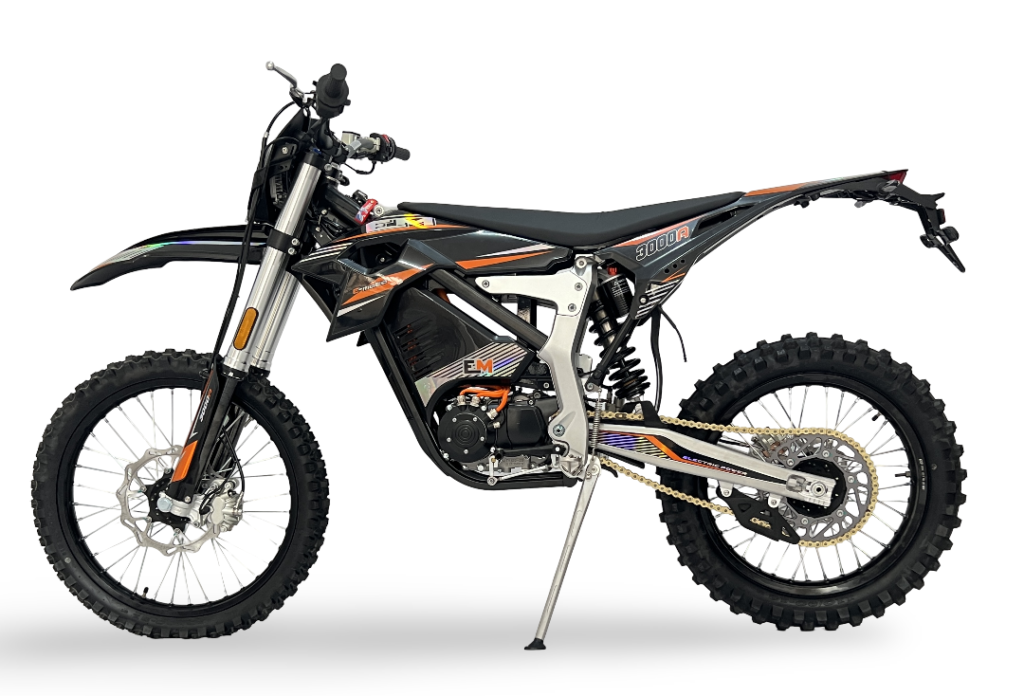
The increasing popularity of electric dirt bikes has sparked a growing interest in their legality. As more riders explore the potential of these environmentally friendly and technologically advanced machines, the question of whether electric dirt bikes are legal becomes a crucial consideration. The answer, however, is not straightforward and involves several key factors that vary by jurisdiction and context.
Legal Definitions
To determine the legality of electric dirt bikes, it is essential to understand how they are defined under the law. In many jurisdictions, high-performance motorcycles, including those with powerful engines or modifications like racing models, are subject to strict regulations. These restrictions are typically imposed to ensure safety and reduce the risk of accidents on public roads. Electric dirt bikes, with their powerful motors and off-road capabilities, may fall under similar categories, depending on their specifications and intended use.
Electric Bike Features
The unique features of electric dirt bikes also play a significant role in their legal status. Unlike traditional motorcycles, electric dirt bikes are pure-electric vehicles without combustion engines. This distinction can influence how they are treated under current laws. In some regions, electric vehicles may be subject to different regulations compared to their gasoline-powered counterparts. For example, electric dirt bikes may be exempt from certain emissions standards or noise restrictions, making them more appealing for use in environmentally sensitive areas.
Public vs. Private Property
Another critical factor in determining the legality of electric dirt bikes is the location where they are being used. On private property or designated off-road areas, specific local regulations are less likely to apply, as these environments are not considered public roads or trails. Riders can often enjoy electric dirt bikes on private land without facing the same regulatory hurdles as on public roads. However, this varies significantly by location and jurisdiction. Some regions may still impose restrictions on the use of electric dirt bikes on private property, especially if they are near residential areas or protected natural spaces.
Emissions and Safety
One of the primary advantages of electric dirt bikes is their lack of exhaust emissions. This feature could make them more appealing from a regulatory standpoint, as they align with growing environmental concerns and efforts to reduce pollution. In areas where emissions are tightly controlled, electric dirt bikes may be more likely to gain approval for use on public roads or trails. Additionally, their quieter operation can reduce noise pollution, which is another factor that regulators may consider favorably.
Local Ordinances
Despite these potential benefits, the legality of electric dirt bikes is often determined by local ordinances and regulations. Some areas may have specific rules regarding the use of electric vehicles as motorcycles. This can include requirements for special licenses, registration, or obtaining approval from local authorities before operating on public roads. These regulations are designed to ensure that electric dirt bikes are used safely and responsibly, without posing a threat to other road users or the environment.
Urban Regulations
With the rise of urban electric scooter and bike usage, many cities are extending similar regulations to electric motorcycles. Concerns about traffic safety, infrastructure impact, and the need for clear traffic management have led to stricter rules in some urban areas. As a result, electric dirt bikes may face additional restrictions in cities, including speed limits, designated lanes, or even outright bans in certain zones. These regulations aim to balance the benefits of electric transportation with the need to maintain safe and orderly urban environments.
Technological Advancements
The future of electric dirt bikes may also be influenced by ongoing technological advancements. Improvements in battery technology, for example, could enhance the practicality of these bikes for long rides or rough terrains. As electric dirt bikes become more prevalent and their performance improves, their legal standing may evolve. Manufacturers and advocates are likely to push for clearer regulations that recognize the unique benefits of electric dirt bikes while addressing legitimate safety and environmental concerns.
Conclusion
In conclusion, the legality of electric dirt bikes is a complex issue that depends on a variety of factors. These include the specific features of the bike, the location of use (public vs. private), and the local regulations governing electric vehicles. While electric dirt bikes offer significant advantages in terms of environmental impact and potential use in off-road settings, their legal status remains subject to ongoing debate and regulatory scrutiny. As technology advances and public awareness grows, it is essential for riders, manufacturers, and policymakers to work together to establish clear guidelines that balance innovation with safety and sustainability.





Leave a Reply